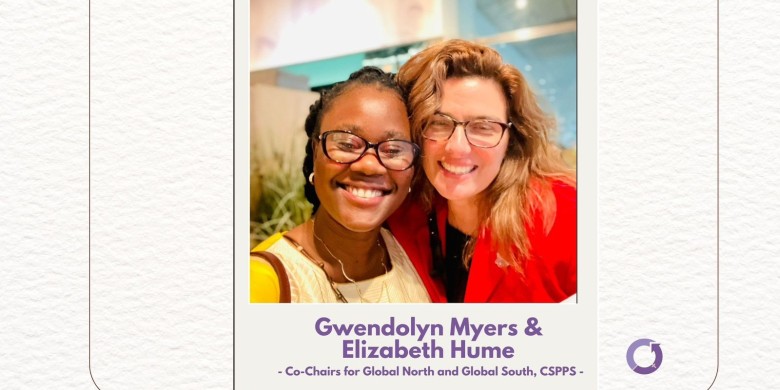
Paving the way for peace: the meaningful contribution of women peacebuilders
March is a key moment for women all over the world. On the 8th of March, we celebrated International Women’s day, and three days later, the 68th Session of the Commission on the Status of Women opened, which runs from 11 March to 20 March. Every single year, these two events are pivotal moments to give focus on women's and girls rights and come together promoting gender equality and the empowerment of women; but they’re also a reminder of the progress that still needs to be made.
As the world faces many challenges – climate change, pandemics, conflicts, etc. –, women and girls are disproportionately affected by each of these crises. From Haiti to Gaza to Afghanistan, ongoing crises bear witness to the vulnerability of women in fragile and conflict-affected settings. Bringing a response to these situations isn’t sufficient as long as women are not meaningfully engaged and included as part of the response.
The contribution of women to peace processes is unique: not only do they provide a response that considers women’s and girl’s needs, but they also improve the outcome of the processes by creating a framework for sustainable peace (Anderlini, 2020). A gender-sensitive approach to peacebuilding is an asset on various fronts. It helps to understand the dynamics of violence and conflicts by analysing traditional structures of the international system and gender-based expectations. For a long time, women were marginalised from the military and political spheres of peace processes as they were seen primarily as victims rather than actors. However, their vulnerability isn’t an obstacle to initiating and participating in change. On the contrary, it makes them valuable actors in peacebuilding efforts. Women’s contribution is particularly noteworthy for the fact that they emphasise the importance of societal transition by addressing aspects that are generally neglected of peace processes, such as the treatment of victims and prisoners and the building of trust and dialogue between different communities, while drawing on local practices and knowledge. Therefore, recognizing women as agents of social change by facilitating their access to decision-making bodies is fundamental.
As a peacebuilding actor, CSPPS’s work aims to integrate and address gender issues. On the ground as in the office, CSPSS acts with integrity. The Platform’s commitment to gender equality is reflected by the presence of two women, Ms. Gwendolyn Myers and Ms. Elizabeth Hume as current co-chairs of the Platform’s Executive Committee. The Platform not only raises awareness of the crucial role of women in peacebuilding, it also provides lobbying and advocacy platforms where possible and needed, to amplify the voice and agency of women peacebuilders and support their meaningful engagement in conflict prevention and peacebuilding efforts.
In the context of the 2030 Agenda for Sustainable Development, CSPPS’s activities focus primarily on SDG16, however highly emphasises the needed focus on the interlinkages with other SDGs, including SDG5 on gender equality to promote progress on all SDGs and targets in an inclusive manner. Furthermore, CSPPS members are also working to implement the Women Peace and Security (WPS) Agenda at their level, in line with UN Security Council Resolution 1325. As a Platform we recognize the need to address gender issues in order to create and maintain sustainable peace while enabling women to assert themselves in all aspects of peace processes.
Because hope will never cease to exist as long as we carry it, on behalf of CSPPS, we hereby share the message as issued by our co-chairs on International Women’s Day!:
« Empowering women in leadership is key to inspiring inclusion and driving positive change. This International Women's Day, let's celebrate the visionary women who lead with courage, compassion, and inclusivity. Their dedication paves the way for a more equitable and diverse world, where every voice is heard and valued. Join us in honouring female leadership and championing the path towards a more inclusive future for all. » – Gwendolyn Myers & Elizabeth Hume.

